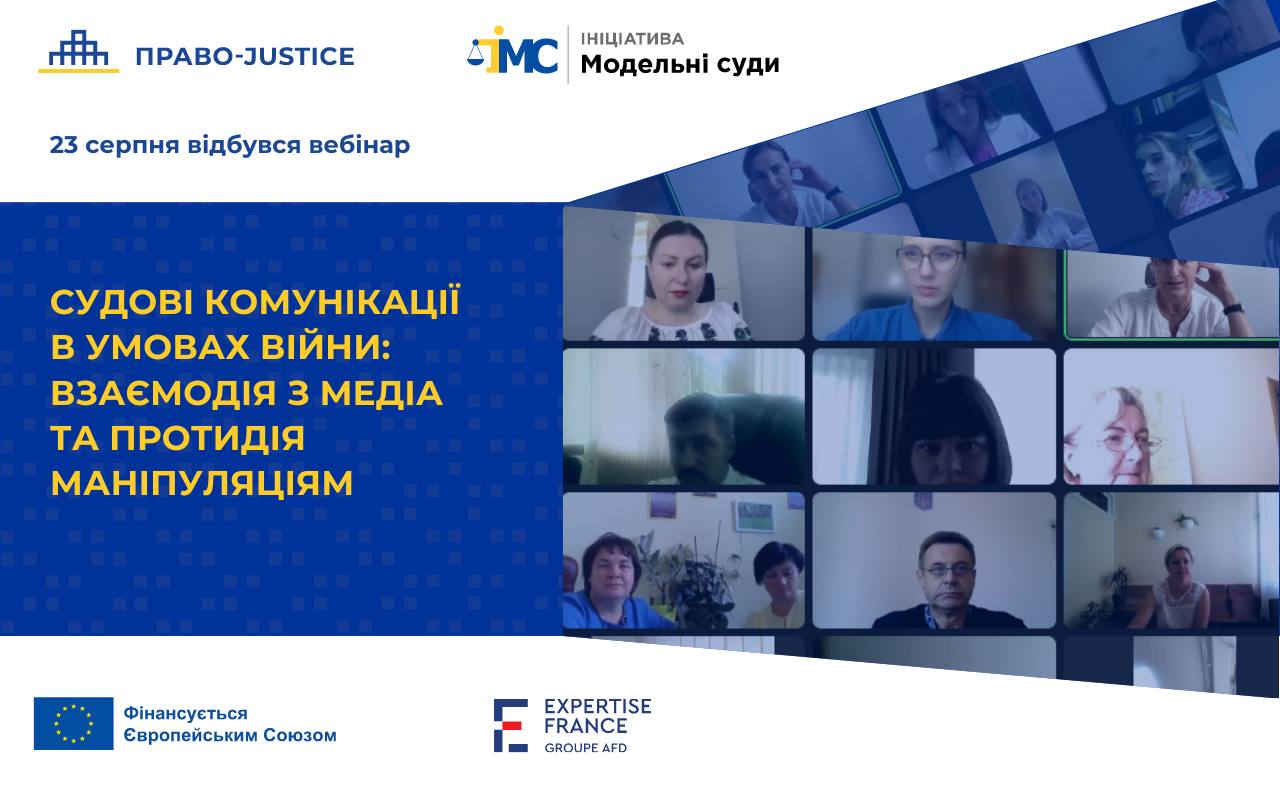How to Interact with the Media and Counter Manipulation: EU Project Pravo-Justice Held the Webinar for Courts

On August 23, the EU Project Pravo-Justice in cooperation with the NGO “All-Ukrainian Association of Court Employees” organized the webinar “Judicial Communications in Wartime: Interaction with the Media and Countering Manipulation.” The event took place within the framework of the Model Courts Initiative. The webinar was attended by judges and court staff.
When opening the event, Anna Adamska-Gallant, Key International Expert on Judiciary, EU Project Pravo-Justice, emphasized that the full-scale invasion affected both judicial system and media. However, their effective interaction remains an important condition for the existence of a democratic society.
“Today, both courts and media work heroically in extremely difficult conditions, ensuring people’s right to access to justice and access to information. In this context, the war has brought new challenges. However, it is necessary to consider how to reconfigure the interaction in order to achieve justice and respect freedom of speech,” said Anna Adamska-Gallant.
Nataliia Korol, Head of the NGO “All-Ukrainian Association of Court Employees”, Chief of Staff of the Vinnytsia Court of Appeal, emphasized that proper communication became very important for the courts and the society in the time of war.
"In such difficult times we live through, one can hardly overestimate the importance of information for each and every person. Therefore, the cooperation between courts and mass media is a guarantee of proper coverage of the fair trial of cases, including those related to war crimes. After all, the society needs to see that the guilty will be punished, and justice will be restored,” emphasized Nataliia Korol.
The lecturer at the webinar, national expert of the EU Project Pravo-Justice, media expert of the Institute of Mass Information, Iryna Zemliana, focused on building effective relations between courts and mass media, alongside understanding the media landscape during war.
“The war has had a strong impact on journalists’ work, as there were many restrictions caused by the martial law regime. There is a real lack of information or access to sources of information. Public authorities, including the judicial system, often are the main sources of information for the media. Therefore, the courts need to bear in mind such an “advantage” and apply efforts to build effective cooperation with the media, which could help with covering the court’s activities,” Iryna Zemliana stressed.
The expert cited some key trends which had been observed in the media since the beginning of the full-scale invasion, and also advised on how to resist manipulation and hostile narratives for effective court communication.